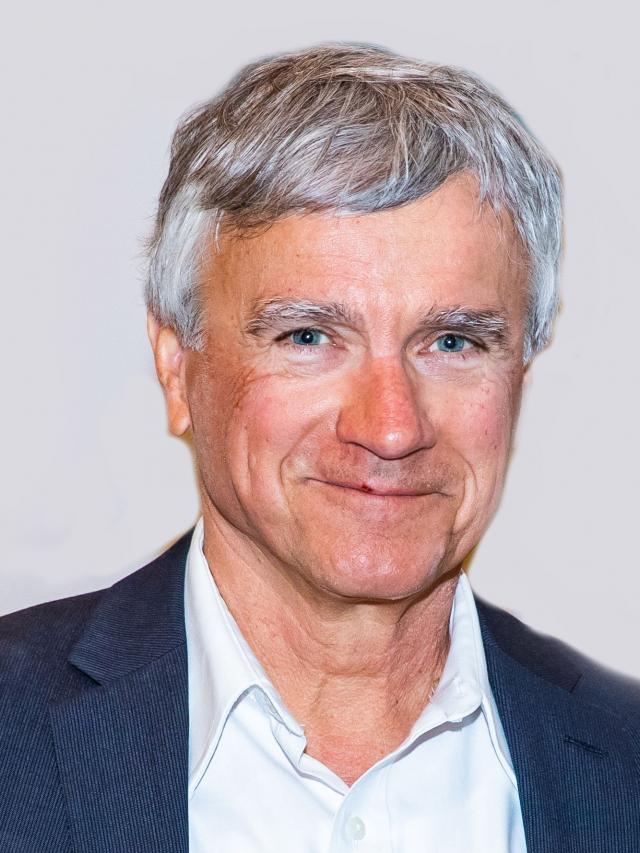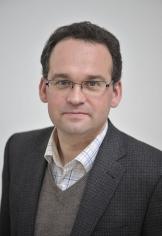In 2024, with the support of the Hungarian Academy of Sciences (HAS), a total of 14 renowned foreign research professors will arrive to Hungary, two of whom will come to Budapest University of Technology and Economics to join the research activities at BME.
The aim of the programme, initiated by the Academy, is to strengthen the international competitiveness of Hungarian higher education institutions, research institutes and research centres by supporting the institutional presence of foreign visiting professors. Applications for the calls for proposals were received from various disciplines: humanities and social sciences, life sciences, as well as mathematics and natural sciences. These were evaluated by a 12-member jury of experts in the respective disciplines, who then recommended a ranking of excellence for the applications to the Secretary General of HAS. A total support budget of HUF 100 million was available for the programme with the participating institutions receiving grants ranging from HUF 4.7 million to HUF 9 million.
Thanks to the initiative, 10 national institutions will host 14 visiting researchers from the United States, Germany, India, the United Kingdom, Austria, Spain, Croatia, Argentina and Finland.
Visiting professors and their hosts arriving at Budapest University of Technology and Economics in the framework of the HAS 2024 call:
|
Senior researcher extending invitation |
Area of Science |
Visiting researcher |
Host institution | Number of
months supported |
Funding amount (HUF M) |
|
Árpád Barsi |
X. Department of Earth Sciences |
Charles Toth (research professor – Ohio State University, USA; Honorary Doctor – BME) |
Budapest University of Technology and Economics, Faculty of Civil Engineering (BME ÉMK) |
3 |
6,6 |
|
László Nyulászi |
VII. Department of Chemical Sciences |
Christian Müller (professor – Freie Universität Berlin, Germany)
|
Budapest University of Technology and Economics, Faculty of Chemical Technology and Biotechnology (BME VBK) |
3 |
7,5 |

Charles Toth, Research Professor at Ohio State University, USA, Honorary Doctor of BME
Born in Hungary, he is an internationally recognised expert in photogrammetry, remote sensing, geomatics, sensors, navigation, point cloud data acquisition technologies and mobile mapping systems.
Early in his career, he played a key role in developing and implementing the concept of the first mobile mapping system (MMS), one of the first civilian applications of GPS. He is considered one of the founding fathers of MMS and is recognised worldwide for his contribution to the development of MMS technology and applications. For the past 25 years, he was one of three international leaders who organised the International Symposium on Mobile Mapping Technology (MMT), which focuses on the development of navigation and imaging technologies and their applications in digital mapping, urban modelling, emergency response, unmanned vehicles, precision farming, personal navigation, indoor navigation, etc.
In the late 1990s, he led the OSU team on the Airborne Integrated Mapping System (AIMS) project, which was the first in the world to deliver a prototype of a fully digital, directly georeferenced, high accuracy airborne mapping system, based on the close integration of GPS and the Inertial Navigation Unit (IMU). Later he has made significant research contributions to direct georeferencing of remote sensing platforms, introducing GPS/IMU-based sensor orientation to the mapping community, and is generally credited with coining the terms “direct and indirect georeferencing”.
He was an early advocate of the use of complex geospatial data (such as terrain models and images) to support vehicle navigation. His efforts in this area have contributed greatly to the rapid development of autonomous vehicle technologies.
He has designed and developed several prototype systems for research in the field of mapping and navigation, including various backpack navigation and mapping systems to support combat and emergency units; mobile platforms supporting indoor navigation and mapping, and the development of collaborative navigation. He has led a number of field measurements and studies to evaluate the performance of prototype systems in collaboration with other research groups.
Charles Toth has developed a significant and close collaboration with the Faculty of Civil Engineering (ÉMK) at BME over the past three decades, with 10 faculty members and doctoral students spending at least 6 months of their research under his leadership at the Ohio State University. At BME ÉMK’s Department of Photogrammetry and Geoinformatics point cloud data acquisition and data processing technologies have been a central research topic for over two decades, with several doctoral degrees granted and high-profile publications published in the field. Currently, three PhD students are working on similar topics, which is also the basis of a senior researcher’s HAS doctoral thesis. With Charles Toth’s help, BME ÉMK will be able to conduct cutting-edge research at an international level, and his support is a major boost to the work of his colleagues at the department.
In contrast to the traditional digital earth approach, point clouds with high accuracy and detail serve a wide spectrum of engineering applications, and the use of artificial intelligence has given a new impetus to processing methods worldwide. The researchers plan to develop algorithms and workflows that allow the automatic processing of large amounts of data with the optimal use of resources. The main objective is to segment and classify objects of interest (e.g. roads, building elements, vehicles) that serve as input for further applications (e.g. vehicle dynamics simulations, BIM applications).

Christian Müller, Professor at Freie Universität Berlin, Germany
He is prominent researcher on six-membered ring phosphorus compounds. With the help of his expertise and direct guidance, a new, stable divalent carbon-containing six-membered cyclic phosphino-carbene is being produced at BME’s Faculty of Chemical Technology and Biotechnology. The properties of the carbene to be produced are significantly substitutable due to the six-membered ring structure, and can be fine-tuned to modify them compared to known carbenes. Thus, using the product as a ligand, the catalytic properties of their complexes (see, for example, the 2005 Nobel Prize in Chemistry) can be changed. The joint research project will provide an opportunity for holding cumulative seminar series on phosphorus chemistry, which will be open to interested researchers from Eötvös Lóránd University (ELTE) and the Hungarian Research Network’s Research Centre for Natural Sciences (HUN-REN TTK), in addition to BME’s lecturers and students.
Christian Müller was an IAS fellow of the Deutsche Akademische Austauschdienst (DAAD) at the University of Michigan in Ann Arbor. After his return to Bielefeld University he received his diploma in Chemistry and subsequently his PhD. He was awarded a fellowship of the Deutsche Forschungsgemeinschaft (DFG), he worked at the University of Rochester, New York (USA), the University of Amsterdam in the Netherlands, and then at Eindhoven University of Technology, where he was appointed an assistant professor in 2004. In January 2012 he got appointed as full professor of inorganic chemistry at the Free University of Berlin.
For the full list of visiting professors coming to Hungary under the Academy’s programme, see the HAS news.

